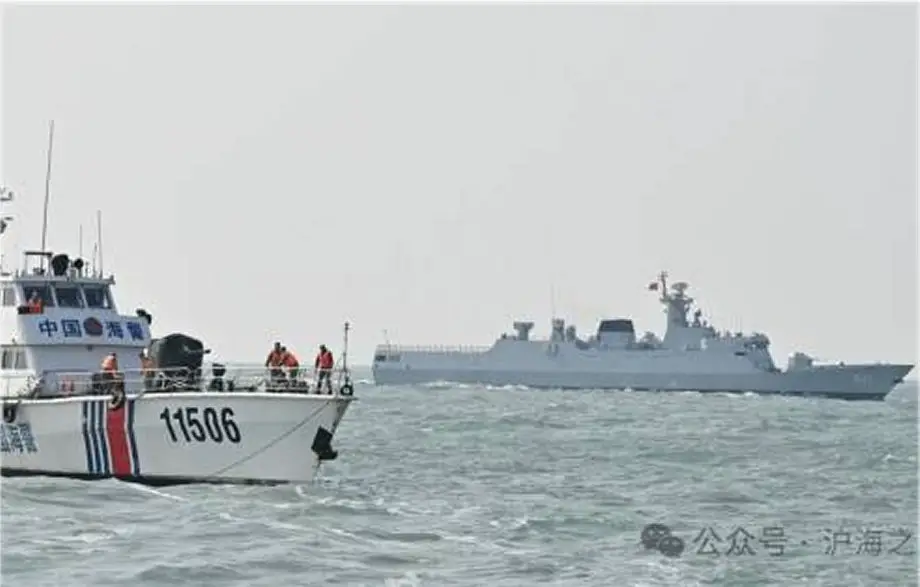According to information published by China Times on March 19, 2024, amid escalating tensions in the Taiwan Strait, the Chinese Coast Guard has conducted a series of combat drills across multiple maritime areas, with the People's Liberation Army (PLA) Eastern Theater Command's naval and air forces recently joining the exercises.
Follow Navy Recognition on Google News at this link
 Chinese Coast Guard vessel 11506 and PLA Navy's Type 056A corvette. (Picture source: Weibo)
Chinese Coast Guard vessel 11506 and PLA Navy's Type 056A corvette. (Picture source: Weibo)
The Navy stated in a press release that the Eastern Theater Command's naval escort fleet, in conjunction with the air force and coast guard, has recently conducted cross-domain, multi-disciplinary, and day-and-night live combat training.
The Navy's Type 056A corvettes, the Ezhou and Yiwu ships, a coast guard vessel numbered 11506, and a PLA air force fighter jet participated in this training. During the exercises, the naval warships simulated air defense using their main guns and close-in weapon systems to defend against incoming missiles. Following this, the Ezhou ship intercepted enemy aircraft, while the Yiwu ship undertook mine-sweeping duties.
Furthermore, the Chinese navy mentioned that the escort ships later conducted joint exercises with the coast guard, simulating emergency situations such as violent resistance to law enforcement. Since February 14, the Chinese Coast Guard has intensified its law enforcement patrols in the waters near Kinmen.
Context
The Chinese Coast Guard (CCG) role has evolved significantly, blurring the lines between maritime law enforcement and military operations, particularly in the context of China's territorial assertions in contested maritime regions.
A notable legislative development that highlights the intertwined roles of the CCG and PLAN is the enactment of the new CCG Law. This law authorizes the CCG to enforce China's maritime claims in ways that extend beyond the boundaries recognized by the United Nations Convention on the Law of the Sea (UNCLOS).
Specifically, it positions the CCG as an organization tasked with both national defense and maritime law enforcement, effectively militarizing its role. This legislative change has raised international concerns, as it suggests a more aggressive posture towards foreign military and non-commercial vessels in disputed waters.



